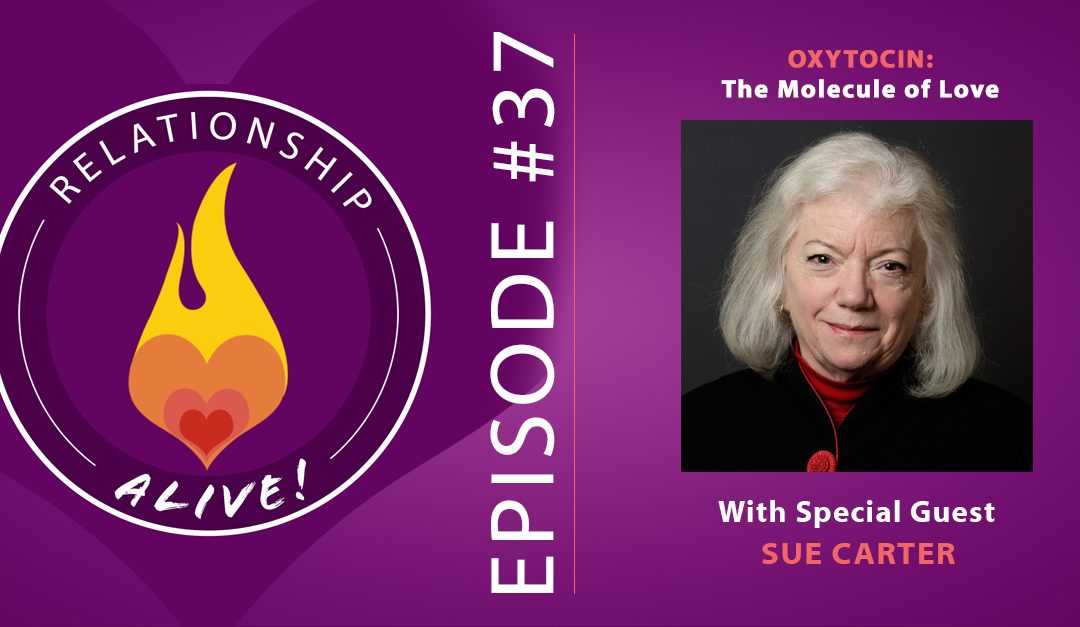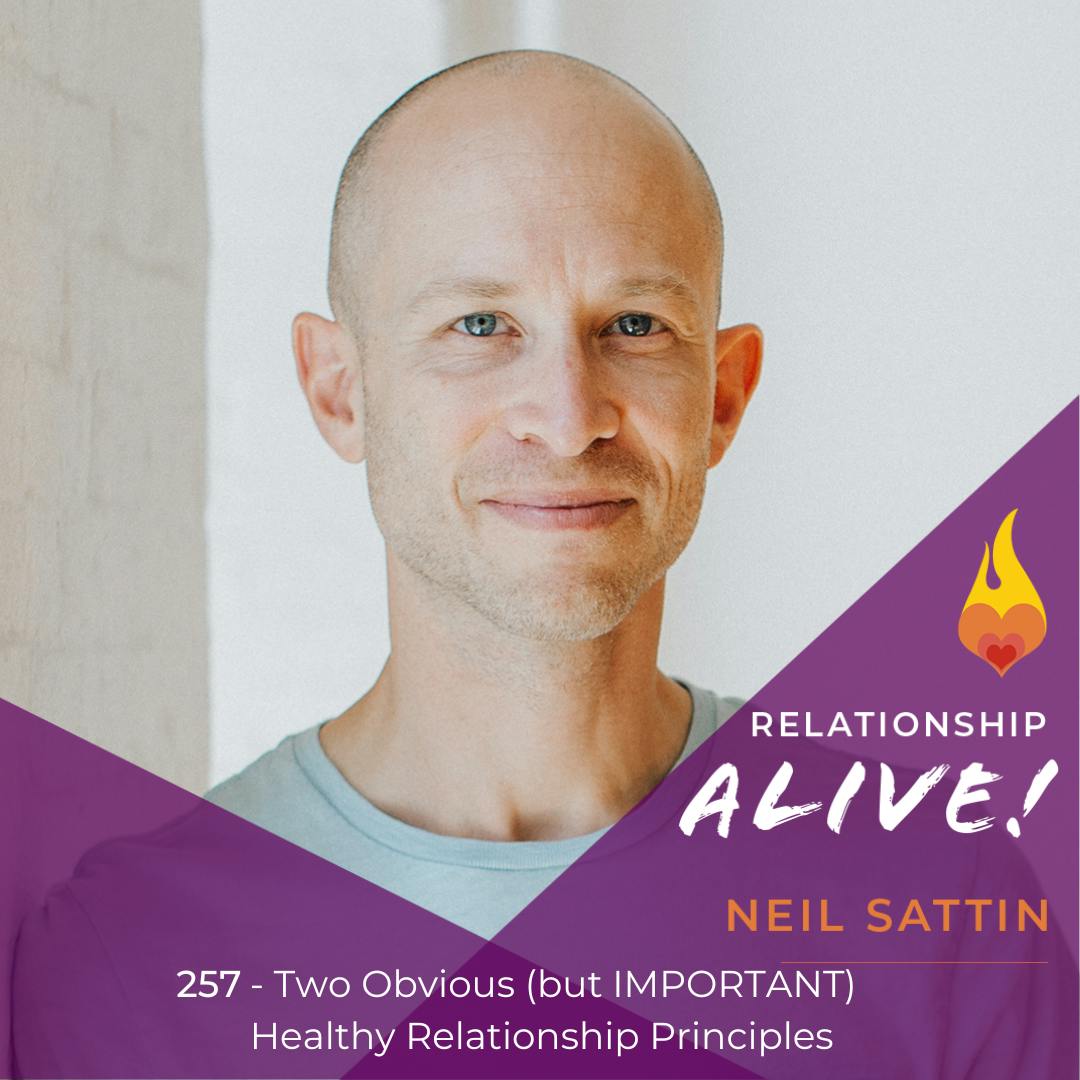How does your biochemistry affect your relationship? Are there ways to foster the inner chemicals of love to keep things feeling fresh and vibrant? Today we’re talking about the big “O” - Oxytocin - and its impact on how we fall into love, and keep love going. In other earlier episodes on the show, we’ve talked about oxytocin, and oxytocin versus dopamine - and it seemed like it was time to go straight to the source of much of what we know about how oxytocin works.
Today’s guest is Sue Carter, Director of the Kinsey Institute, and Rudy Professor of Biology at Indiana University. Sue was the first person to figure out oxytocin’s role in how we bond with our partners - so if you hear people talking about this “love chemical” - they’re probably talking about her work or work that’s based on her work. We’re going to chat about what we know about oxytocin, what we don’t know, and how to use the science to help you improve things with your partner.
The Love Hormone: Oxytocin is often seen as the ‘love hormone’. It was first discovered to be involved in love in the early 1970’s when it was found to be present in the birth process. Since that time it has been proven to play a key role in birth, as well as in the bonding of mother and child. More recently it has been discovered that oxytocin affects our brains, and is involved in the biological and neurological system of attachment between parents and children, and between adult partners.
Why is oxytocin so important in successful long term relationships? Anything that lasts a long time in human behavior has to have a biochemical or biological basis. There has to be a mechanism that allows us to fall in love, one that helps keep us together, as well as a mechanism for allowing break ups to happen. The question of why oxytocin is so important is complicated to answer, but the short answer is that it is a mammalian hormone with an ancient biochemistry (meaning it existed before the emergence of mammals) and it is reused many times for many purposes. The most important things in a human life require oxytocin to be present. This includes birth, caring for offspring, finding a mate, creating a social bond with our partners, and restoration and healing in the face of stress.
All mammals have a very similar brain stem. The basic biology of pair bonding and of attachment is possible using old neural mechanisms and is housed in old parts of our brain - the parts of our brain stem which we share with all other mammals. Many believe that the most important organ for connection is our brain. In fact, Woody Allen once said, that the brain is his “second favorite sex organ”. The brain is directly engaged in the process of both falling in love and experiencing positive forms of sex.
Fostering oxytocin production: We can get low level oxytocin production through simple social behaviors- interacting, play, being in a socially safe place, and engaging with others. The most reliable way to release higher levels of oxytocin in humans is via sexual behavior, specifically orgasm. Another activity with high oxytocin production is birth - in which the hormone is released in repeated bursts.
Parent and child - All human babies need a caretaker, and it appears that oxytocin is critically involved in the bonding and attachment necessary to keep children cared for. Attachment behaviors found between parents and children produce similar oxytocin producing results between two adults. For example, it is a fact that the human breast has a monosynaptic connection between the breast and hypothalamus- meaning there is a direct route from the breast to the brain*. This route is not limited to nursing- any kind of breast stimulation has the potential to release oxytocin with other stimulation, if in the right context.
*Men also have this same nipple neural network.
We have a biology that is beautifully attuned to allow us to attach to people that are safe, and people that we have good potential to become long term partners with. Oxytocin is a very clever molecule! Oxytocin works within a background of a set of complex hormones, and never in isolation. It is highly tuned to context, and is sensitive to high levels of stress. This means that consensual sexual interactions are critical for positive and oxytocin producing physiological responses. Although safety is a very relative concept, our bodies are highly tuned to know how to assess for safety.
You can’t just read the sex manual. By all means enjoy reading sex manuals, learning new how tos, and fun tricks, but remember that no matter how well you are trained in the ‘technology’ of sex, there is no assurance it is going to work! You can learn to touch here/suck that, but know that meaningful and fulfilling sexual interactions involve both partners, some key biological processes, and a whole lot of consent. As humans we are always reading the social cues of those that we are forming relationships with. We listen for verbal cues, and are constantly scanning for subtle body language. Always remember that your partner may be having a very different experience than you are. That said, take your time, put yourself in their experience, and look for invitations to move forward.
What makes internet dating so challenging? Our bodies use neuroception - our nervous system’s decision making process - to help read physical and social cues to assess safety. Online dating makes this very difficult, and may explain that feeling of disappointment when you finally meet someone in person who you had amazing internet interactions with. Be patient, and trust your body to know who is a good match.
How to nurture oxytocin - We humans get bored, and our body is designed to seek spontaneity, variety, and novelty in our lives. Yes we have a need for stability and certainty, but our nervous system also craves stimulation and growth! Oxytocin is involved in both the seeking of safety and in the capacity for not fearing the strange. This allows us to enter into novel situations, and enter into new relationships! Without oxytocin there would be no change, and perhaps no partnering at all!
If you want to up the game and make things feel a bit more potent with your partner, then engage in activities that you find mutually exciting and interesting. It is not enough to just feel safe, on top of the secure base there must be something that makes the relationship feel dynamic and exciting. How well is your relationship balanced? Is there too much variety and not enough safety? Or vice versa, too much safety and not enough variety? Play around with the balance, and check in with each other to help come to a working definition that feels right to both of you.
What is happening at the Kinsey Institute - The Kinsey institute is constantly at the cutting edge of research about love, sexuality, and bonding. Currently they are exploring the concept of contact - trying to understand the messy and complex process by which we assess and make better partner decisions. They are also researching how to better help people repair after sexual assault and trauma. Lastly, they are looking into the ramifications of certain medical procedures and surgeries on reproductive and sexual processes.
Resources
Check out what the Kinsey Institute is up to
www.neilsattin.com/oxytocin Visit to download the show guide, or text “PASSION” to 33444 and follow the instructions to download the show guide.
Our Relationship Alive Community on Facebook
Amazing intro/outro music graciously provided courtesy of:
The Railsplitters - Check them Out!


